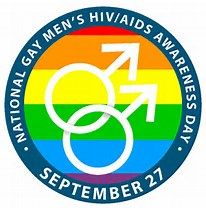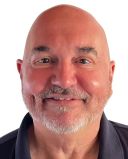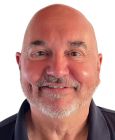Health
The Conversation About HIV Is Changing
Drugs can treat and prevent HIV, but they can't fix mental health risk drivers.
Posted September 27, 2019 Reviewed by Devon Frye
Let’s talk about drugs—specifically, drugs that keep HIV-positive gay men like me “undetectable,” and the drugs used in PrEP (pre-exposure prophylaxis) that, when taken daily, can prevent HIV-negative gay men (and others) from becoming infected.
That’s essentially the theme for this year’s Gay Men’s HIV/AIDS Awareness Day—today, September 27—“The Conversation About HIV Is Changing: Talk Undetectable. Talk PrEP.”
But if we only talk about drugs to prevent and treat HIV, and don’t talk about the trauma behind gay men’s high-risk sexual and drug-use choices, we’ll see that same trauma continue to play out in our disproportionately high rates of crystal meth abuse, alcoholism, and other potentially harmful sexually transmitted infections besides HIV.
There is no question that today’s HIV drugs have dramatically changed the conversation about HIV. From the terrible illness and death that almost inevitably followed a positive HIV test 30 years ago, those of us living with the virus today can expect to live a virtually normal lifespan—so long as we adhere to treatment.
There’s a movement with the slogan “U = U” to emphasize the momentous shift in thinking about what it “means” to have HIV because of studies demonstrating that those of us living with HIV who keep our virus suppressed cannot infect someone else.
Knowing we don’t put our partners at risk is a huge relief. Educating those who don’t have HIV to understand this fact should help ease the stigma that too many still attach to HIV. If there’s nothing to be afraid of from an HIV-positive person, there likewise should be no reason to rule out sex play or a relationship with that person—or to treat him like a pariah.
Steve Gibson, the founder in 2003 of San Francisco’s gay men’s sexual health clinic Magnet—in 2016, it was blended into Strut, on Castro Street, the city’s one-stop-shop for gay men’s health and well-being—told me in an interview for my book Stonewall Strong that PrEP is transforming how gay men relate to one another across what has often been called the HIV “viral divide.”
“What we’re seeing in San Francisco now,” said Gibson, “is very good public health attempts to encourage disclosure around serostatus. For the first time in my 25 years in public health, the conversation is changing around how positive and negative gay men are talking to each other about terms like ‘clean’ and ‘dirty’ and the stigma we internalized as a community. We know that viral suppression is highly effective and that PrEP is highly effective. So we can have a conversation about our desires.”
That’s a part of the conversation we really need to have if we are serious about supporting gay men’s health. As important as the HIV drugs are, this conversation has to be about more than providing drugs to prevent or treat HIV. In fact it goes well beyond HIV.
We need a conversation about the extraordinary traumas of gay men’s lives beginning when we first become aware of being “different.” We need to talk about the damaged self-esteem that leads so many of us to engage in risky sex or medicate our loneliness and psychic pain with alcohol and other substances.

As amazing as it is that we have drugs that can let us live well with or avoid HIV, those drugs are only effective when they’re taken as prescribed. They will do no good at all if someone is so depressed or strung-out that he forgets to take them—or simply doesn’t feel he’s worth the effort.
Edward Machtinger, M.D., professor of medicine and director of UCSF’s Women’s HIV Program, told me in an interview for Stonewall Strong that addressing trauma has the potential to transform primary medical care. Instead of treating symptoms with medications, this new paradigm aims to address medical and mental health problems by getting to the root causes of so many of those problems—and thereby provide genuine healing.
Addressing the trauma that underlies so much illness makes doctors “healers instead of treaters,” said Machtinger. Unfortunately, for patients living with HIV in particular, the dominant way of framing discussions of HIV is strictly biomedical. It fails to consider the whole person.
Machtinger described a study at another clinic at UCSF, looking at older gay men. It found a rate of current PTSD of 12 percent, a rate dramatically higher than general rates of PTSD among men. “To me,” said Machtinger, “HIV is a symptom, especially in new cases of HIV, of a far bigger problem: unaddressed trauma.” For younger gay men, Machtinger said, “Their HIV seems to be a symptom or consequence of an underlying history of trauma or discrimination, toxic stress, or whatever else is going on in their lives that puts them at risk for HIV.”
Speaking of older gay men in San Francisco who have lived with HIV for years—like the men featured in the San Francisco Chronicle’s March 2016 story “Last Man Standing”—Machtinger pointed out that they struggle against depression, isolation, and thoughts of suicide. “These aren’t consequences of their HIV medication or the HIV virus,” he said. “They are related to underlying histories of trauma that are largely going unaddressed by simply treating their HIV with medication.”
The ability to take drugs that can liberate our sex lives from fear is a marvelous development in the 38-year history of HIV-AIDS. But if the changing conversation about HIV doesn’t address trauma, depression, PTSD, substance misuse, and the other mental health challenges that disproportionately afflict gay men, we’ll continue to see new HIV infections and people needlessly dying from advanced untreated HIV disease, a.k.a. AIDS.
* * * * *
For more on the impact of depression on gay men, please see my earlier (and most widely read) post, "Depression is Killing Gay Men" here: https://www.psychologytoday.com/us/blog/stonewall-strong/201806/depress…




